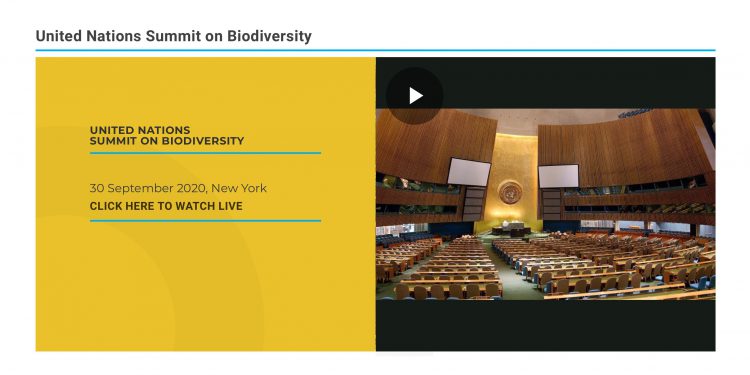Global efforts have failed to reach any of the 20 biodiversity targets countries set a decade ago, the United Nations has heard.
The Covid-19 pandemic has applied increased urgency to these targets, demanding changes in the relationship with nature.
The UN’s Biodiversity Summit was held at the 75th General Assembly on September 30.
Speaking virtually, over 100 world leaders aim to stem the decline of the planet’s biodiversity, which has seen a 68% loss of vertebrates since 1970.
The summit heard that governments are providing $500 billion in subsidies that potentially cause environmental harm.
The goal is to build political momentum for the Convention on Biodiversity’s Conference of the Parties (COP15), in Kunming, China in 2021, where world leaders will agree to an ambitious plan of action on biodiversity.
“Kunming needs to turn biodiversity into a household concern and political issue. Everyone must realise the risks of inaction,” said Volkan Bozkir, President of the UN General Assembly.
With food security directly threatened, two billion hectares of degraded land needs to be restored to support biodiversity and more than one-third of fish stocks are in urgent need of recovery.
“Food security is directly threatened”
Prince Charles of the United Kingdom called for a new Marshall Plan to advance a blue‑green recovery rooted in a new economy and a “polluter pays” principle.
He said perverse subsidies, such as those for fossil fuels, should be tackled to make biodiversity restoration possible and to transform the lives of millions of small farmers and fishermen and coastal communities around the world.
He added that the “virtuous circle” of nature is something the world’s indigenous peoples understand only too well, and their profound wisdom should be heard.
Archana Soreng, indigenous youth representative and member of the Secretary‑General’s Youth Advisory Group on Climate Change, agreed that indigenous practices should be nurtured and local communities empowered as main stakeholders within decision‑making structures for biodiversity conservation.
She warned that expanding protected areas to cover one third of the world, as some are proposing for the post‑2020 biodiversity framework, could trigger immense human rights violations and constitute the biggest land grab in history, reducing millions to landless poverty. “Removing us from our land is deeply colonial and environmentally damaging,” she said.
More than three billion people depend on marine and coastal biodiversity for their livelihoods. Around one third of jobs in developing countries are directly dependent on biodiversity and ecosystem services.
The United Nations Summit on Biodiversity website can be found here. And the Global Biodiversity Outlook is here.























